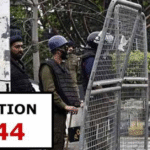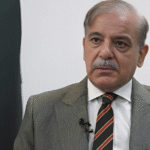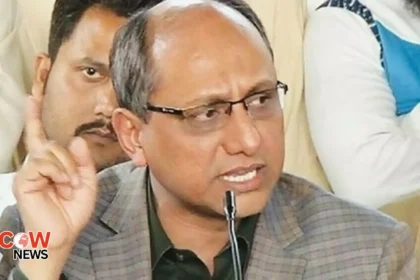Islamabad — In a politically charged atmosphere, the Pakistan Muslim League-Nawaz (PML-N) has vehemently criticized the Pakistan Tehreek-e-Insaf (PTI) party following reports that an adviser to the Khyber Pakhtunkhwa Chief Minister, Barrister Saif, invited Indian External Affairs Minister S. Jaishankar to address a protest sit-in in Islamabad. This unexpected invitation has ignited a fierce debate over national sovereignty, diplomatic etiquette, and the appropriateness of engaging with Indian officials at a time of heightened tensions between Pakistan and India.
Context of the Controversy
The invitation to S. Jaishankar came amid a backdrop of strained relations between the two countries, characterized by longstanding disputes over Kashmir, cross-border terrorism allegations, and periodic military skirmishes. The history of animosity, punctuated by military conflicts and political disagreements, makes any overtures towards Indian officials particularly sensitive.
PML-N officials have framed the PTI’s invitation as a significant misstep, arguing that it undermines Pakistan’s dignity and sovereignty. They emphasize the need for a unified national front when dealing with external threats and stress that inviting an Indian minister is not only inappropriate but could also be perceived as an attempt to legitimize India’s historical grievances against Pakistan.
Criticism from PML-N
PML-N leaders have articulated their discontent in various statements, emphasizing the need for a more cautious approach towards India. One notable remark came from a senior party official who suggested that instead of extending an invitation to Jaishankar, PTI leaders should consider showing him the “over 200 military installations” that have been subject to violence and vandalism during the protests that erupted in Pakistan recently. This comment highlights the ongoing narrative of victimhood and martyrdom that resonates deeply with segments of the Pakistani public.
The party has pointed out that the May 9 incidents, where protests following the arrest of former Prime Minister Imran Khan turned violent, resulted in clashes with law enforcement and extensive property damage. They view the PTI’s invitation as a grave error in judgment that not only disrespects the sacrifices made by the Pakistan Army but also risks undermining national security.
The PTI’s Justification
In response to the backlash, Barrister Saif defended the invitation, suggesting that if India positions itself as a champion of democracy, its minister should participate in the protest and engage in dialogue. Saif believes that inviting Jaishankar could serve as a demonstration of India’s commitment to democratic values and principles, potentially paving the way for improved bilateral relations.
Saif’s rationale is based on the premise that stronger ties with neighboring countries could fortify Pakistan’s position both regionally and internationally. He contended that inviting Indian leaders for dialogue could help Pakistan stand on its own feet and potentially lead to a more constructive relationship with India. This perspective, however, has been met with skepticism by political opponents who question the practicality and sincerity of such an invitation.
Political Reactions and National Sentiment
The invitation has not only intensified the political rivalry between the PTI and PML-N but has also sparked a broader discussion among the general public regarding national identity and foreign relations. Many Pakistanis view the situation through the lens of historical grievances and collective trauma stemming from decades of conflict with India.
Public sentiment on engagement with India is deeply polarized. Some segments of society advocate for diplomacy and dialogue, while others remain skeptical, seeing India primarily through a lens of historical aggression and betrayal. The PML-N’s criticism taps into this national sentiment, framing the PTI’s actions as reckless and indicative of a lack of understanding of the complexities of Pakistan-India relations.
Historical Context of India-Pakistan Relations
The fraught relationship between India and Pakistan has roots that go back to the partition of British India in 1947. The division led to mass violence and displacement, sowing the seeds of deep-seated animosity between the two nations. Over the decades, multiple wars and military skirmishes have further exacerbated tensions, particularly over the Kashmir issue, which remains unresolved to this day.
The Kashmir conflict has been a focal point of contention, with both countries claiming the territory. Periodic ceasefire violations, allegations of cross-border terrorism, and military confrontations have characterized their interactions. This historical backdrop makes any form of engagement with Indian officials highly sensitive, especially in the context of domestic political struggles.
Media Coverage and Public Discourse
Media coverage of the controversy has amplified the tensions surrounding the PTI’s invitation. Various news outlets have reported extensively on the implications of inviting an Indian minister, framing it as a potential diplomatic blunder that could undermine Pakistan’s standing in the eyes of its citizens. Political commentators have weighed in, offering diverse perspectives on the invitation and its potential ramifications for Pakistan’s political landscape.
The media plays a crucial role in shaping public perception, especially regarding sensitive topics such as foreign relations. As the narrative surrounding the PTI’s invitation unfolds, it becomes evident that public opinion will be a significant factor influencing the political calculus of both the PTI and PML-N.
National Security Concerns
One of the most pressing issues surrounding the invitation is the potential impact on national security. With both countries maintaining a military presence along their borders and ongoing tensions in Kashmir, any overtures towards India can raise concerns about Pakistan’s defense posture.
PML-N officials have warned that the PTI’s actions could send a message of weakness or indecision to India, potentially emboldening its stance in future negotiations. They argue that Pakistan should present a united front in its dealings with India, emphasizing that any dialogue should occur from a position of strength rather than perceived vulnerability.
Future Political Implications
The controversy surrounding the invitation to S. Jaishankar has broader implications for Pakistan’s political landscape. As both parties navigate this contentious issue, the fallout may influence voter sentiment ahead of upcoming elections. Political analysts suggest that the PML-N could capitalize on the situation to paint the PTI as out of touch with national interests and security concerns.
Conversely, the PTI may seek to frame the invitation as a bold step towards fostering diplomatic relations, appealing to segments of the electorate that prioritize engagement over isolation. The outcomes of this political maneuvering will be closely watched by analysts, as both parties aim to resonate with their respective bases.
Public Opinion and the Role of Social Media
Public opinion regarding the invitation is likely to be shaped significantly by social media discourse. In an era where information spreads rapidly, social media platforms have become essential for political engagement. Citizens are voicing their opinions, sharing articles, and debating the implications of the PTI’s invitation, influencing the broader narrative around the issue.
The role of influencers and political commentators on social media cannot be underestimated. Their perspectives can amplify sentiments, swaying public opinion in favor of or against the actions of political parties. As such, the online discourse surrounding the invitation will likely play a crucial role in shaping the political narrative in the coming weeks.
The PML-N’s criticism of the PTI for inviting Indian External Affairs Minister S. Jaishankar to address a protest sit-in in Islamabad reflects the complex dynamics of Pakistan-India relations and the domestic political landscape. As both parties navigate this contentious issue, the implications for national identity, foreign relations, and political capital will continue to unfold.
The ongoing discourse will not only shape the immediate political landscape but may also have lasting effects on how Pakistan approaches its foreign policy and engagement with neighboring countries in the future. With national sovereignty and public sentiment at stake, the debate surrounding this invitation is likely to resonate beyond the current political cycle.
#PMLN #PTI #IndiaPakistanRelations #PoliticalDebate #Sovereignty #PublicOpinion #NationalSecurity #Karachi #ImranKhan #ForeignPolicy







